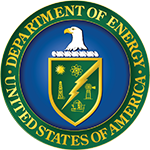This is the first of three trainings in the REopt series. This training will provide federal agencies with an overview of REopt®, a techno-economic optimization platform that can be used to evaluate distributed energy resources (DERs) to support energy cost savings, resilience, and decarbonization goals. It will focus on REopt web tool capabilities, questions that the tool can help answer, and model inputs and outputs, including site/agency data requirements, default assumptions, and key inputs relevant to federal agencies. The training will also include a tool demonstration that participants can follow along with to complete their REopt analyses.
REopt and Federal On-Site Clean Energy: Introduction to REopt
REopt and Federal On-Site Clean Energy: Site Data Requirements
REopt and Federal On-Site Clean Energy: Meeting Decarbonization and Resilience Goals
Instructors
Kathleen Krah, Research Engineer, National Renewable Energy Laboratory (NREL) Read Bio
Kathleen Krah is a research engineer at the National Renewable Energy Laboratory (NREL). Her work centers around NREL’s REopt tool, a techno-economic optimization tool for distributed energy systems. Kathleen leads techno-economic analysis projects to support domestic and international communities, government agencies, and other public- and private-sector organizations seeking to cost-optimally achieve their energy goals – including decarbonization, resilience, and cost-savings priorities. Additionally, she contributes to REopt tool development, with a focus on expanding emissions and renewable energy modeling capabilities, and now leads the REopt team at the program level. Kathleen holds an MEngSc in Sustainable Energy Engineering from University College Cork (Ireland) and a BS in Chemical and Biomolecular Engineering from the University of Notre Dame.
Learning Objectives
Upon completion of this training, attendees will be able to:
- Describe what energy-related questions REopt can help answer;
- List key techno-economic inputs and outputs important for evaluating distributed energy resources at a site;
- Identify the site data required to complete REopt analysis;
- Use REopt to complete a basic techno-economic analysis; and
- Identify resources available to better understand and utilize REopt.









